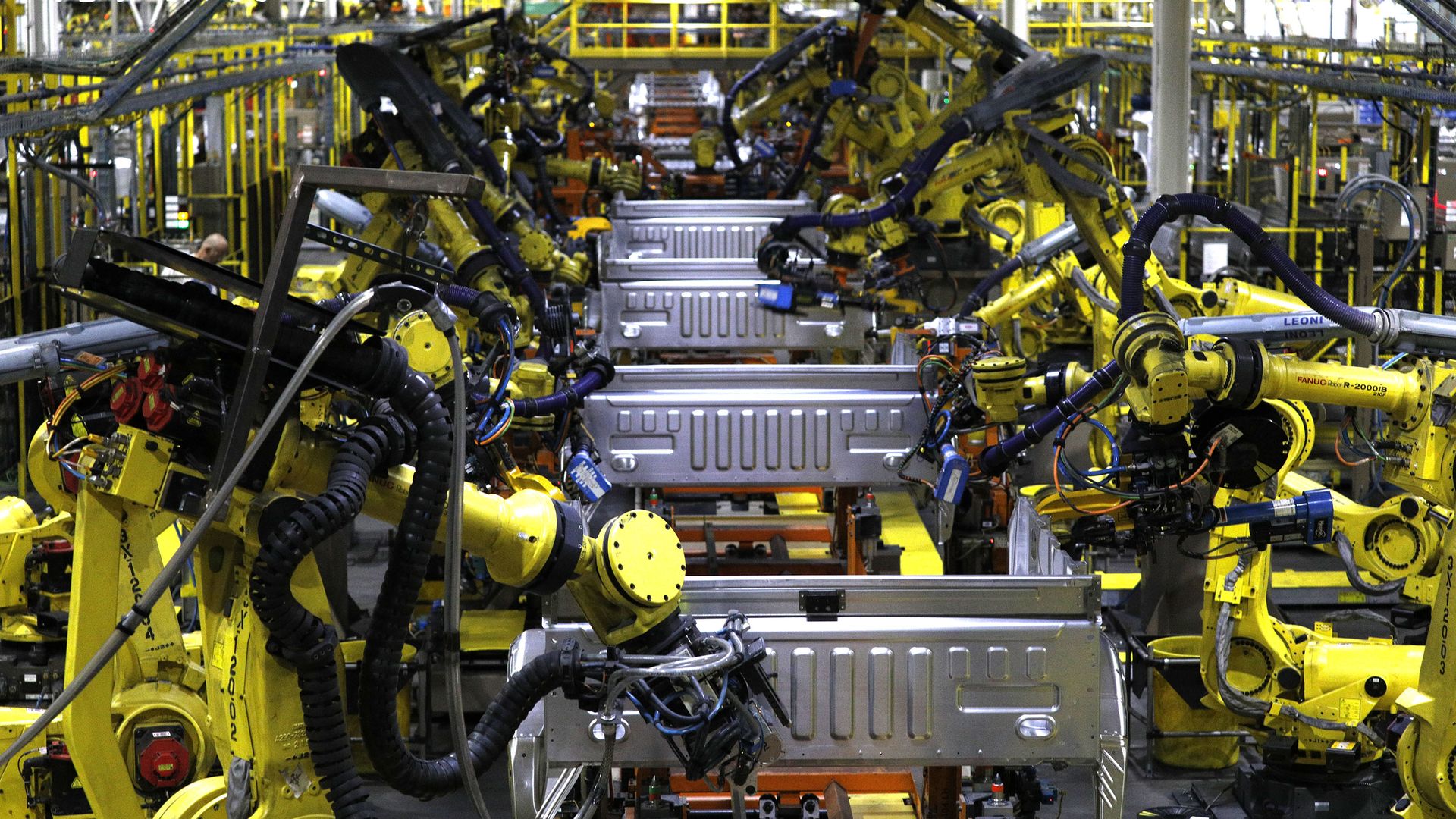Jul 11, 2019 - Technology
The coming impact of automation
Add Axios as your preferred source to
see more of our stories on Google.

Robots on a Ford assembly line in Michigan. Photo: Bill Pugliano/Getty Images
Add Axios as your preferred source to
see more of our stories on Google.

Robots on a Ford assembly line in Michigan. Photo: Bill Pugliano/Getty Images